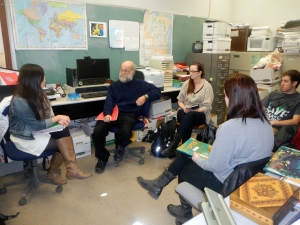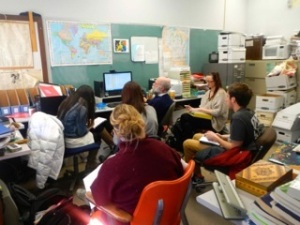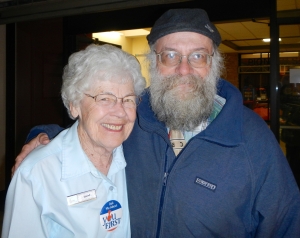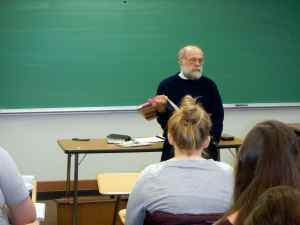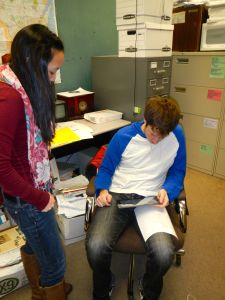Click here for an introduction by David.
Phoumany Phouybanhdyt (Class of 2014) ‘s thoughts:
Lucidpress is advertised as a design and layout app for anyone to make print and digital documents. Recent reviews which we examined have been favorable. Personally, I am impressed with what this application can do, although there are a few problems I encountered while learning to use it. Presently Lucidpress is still in its Beta version, so my hope is that when it transitions away from a Beta version on April 21st, 2014 , these gremlins will disappear.
To explore the features of Lucidpress, I made a sample print flyer, print invitation, and a digital newsletter. Overall, I think Lucidpress is relatively easy to use. You have the ability to work from either a template or from a blank slate. The tools and options are not difficult to maneuver.
The look of this application is very sleek and organized. When working on the digital newsletter, I was able to add a live hyperlink, embed videos, and even use a scrolling effect for the text box. Inside the digital newsletter I created, one could click a text link which redirected the user to a Facebook event in a new window. Lucidpress allows the user much room for creativity.
Things I especially liked. What I love about Lucidpress is the overall sleekness of the products you can produce and how easy it is to use. Of course, I still have a lot to learn and the full capabilities are far beyond what I have explored in the hour I took to investigate its capabilities. This app essentially allows one to do what Microsoft Publisher can do, but more! Another neat feature of Lucidpress is that you can link it to Google Drive and share it with members of a team. This allows multiple users to collaborate on the same project and share comments. Moreover, one can share the finished project in multiple ways: Embedding it on a site, sharing a link, or sending it via e-mail. This application is currently free in its Beta stage when you make a free account. I would highly recommend this product.
Things in Need of Improvement. A couple problems I encountered while using Lucidpress included issues with video embedding, hyperlink embedding, and sharing the project. With the videos, I was able to get them embedded, but when I previewed the document, the videos failed to play. I had some initial issues with embedding a hyperlink, but it appears this may have been a fluke. In regards to sharing the project, I attempted to create a link and tried to copy and paste it into a new browser. I was able to get the link copied but when in a new window it refused to give me the option to paste. This issue is also apparent when trying to paste the link into a document and other locations. Sharing via e-mail appeared to go through to a Gmail account but a Microsoft Outlook account failed to receive the invitation to view. More trials will need to be done to figure this out.
Here is an example created with Lucid Press by a fellow research assistant, Angela Wong.
Please give us feedback about this blog piece review and/or your experiences with Lucid Press by responding to this short survey. Click here to take survey
Thanks in advance!
Phoumany and David (Angela, too!)

